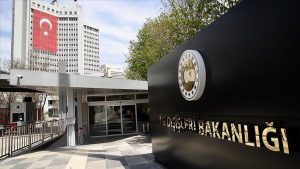The European Union’s new defense initiative, SAFE (Security Action for Europe), looks to increase defense procurement and bolster the bloc’s defense industrial base. Announced in March 2025 and approved by the EU’s General Affairs Council on May 27, SAFE has ignited both strategic interest and diplomatic tensions.
What is the SAFE Program?
SAFE is the EU’s first large-scale defense investment program. As part of the broader “ReArm Europe” plan, it seeks to mobilize over €800 billion in total defense spending. The program itself will provide low-interest loans of up to €150 billion to EU member states for investments in defense equipment and production.
According to the European Council, SAFE aims to:
- Boost European defense technological and industrial base capacity.
- Enable joint procurement among member states.
- Reduce reliance on non-EU suppliers.
- Support Ukraine’s defense industry by treating it like an EU member in procurement processes.
Who Can Participate?
While SAFE is primarily for EU member states, it also opens the door to third countries—and this is where political sensitivities come into play.
The regulation explicitly welcomes cooperation with third countries, naming Ukraine and EFTA-EEA countries (Norway, Switzerland, Liechtenstein, and Iceland) as having equal footing with EU states. They can join joint procurements and sell to EU buyers.
Furthermore, EU candidate countries like Turkey, potential candidates, acceding states, and those with defense partnerships (like the UK) are eligible to join procurements—pending bilateral or multilateral agreements with the EU.
Why is Greece Concerned?
The mention of Turkey’s eligibility has raised alarm in Athens. Greece and Turkey have longstanding disputes over Aegean Sea boundaries, airspace, and military activities. Last week Greek Defense Minister Nikos Dendias directly cautioned against the involvement of “countries that challenge or undermine EU member-states” in the Union’s burgeoning rearmament strategy, a thinly veiled reference to non-EU member Turkey.
Greek diplomatic sources have clarified, however, that Turkey’s participation is not automatic. The SAFE Regulation sets only the general framework. For actual participation, a bilateral agreement with the EU is required—and that requires unanimous approval from all member states. As Greek Foreign Ministry sources told To Vima: “With Greek intervention, unanimity is required for the signing of each such bilateral agreement.”
According to EFSYN, Greek sources cite Article 212 and Article 218 of the TFEU (Treaty on the Functioning of the European Union), which allow for unanimity in approving defense-related agreements.
Still, Brussels sources caution that unanimity applies “only when a threat is raised.” The ambiguity lies in whether longstanding tensions constitute such a threat in the Council’s eyes—particularly as Greek-Turkish dialogue has recently resumed.
If it applies, this gives Greece veto power if and when a Turkey-EU agreement comes up for approval.
What Does the Regulation Say About Third Countries?
SAFE includes a safeguard clause that reassures member states of their national interests. According to EU Commission spokesman Thomas Renier: “The participation of a third country can be excluded if that third country poses an immediate threat to the defense or security of an EU member state or to the EU as a whole.”
Additionally, SAFE limits the origin of components in joint procurements:
- At least 65% of product components must come from the EU, EFTA/EEA countries, or Ukraine.
- No more than 35% can come from third countries like Turkey.
This is intended to protect the integrity of the European defense supply chain.
What Happens Next?
EU member states must submit their national defense plans within six months. It’s during this phase that the issue of Turkey’s involvement in SAFE (and ReArm Europe more broadly) could formally return to the table.
Greece, for now, has approved the general SAFE framework—it could not block it, since the vote required a qualified majority, and 26 out of 27 states supported it (Hungary abstained).







